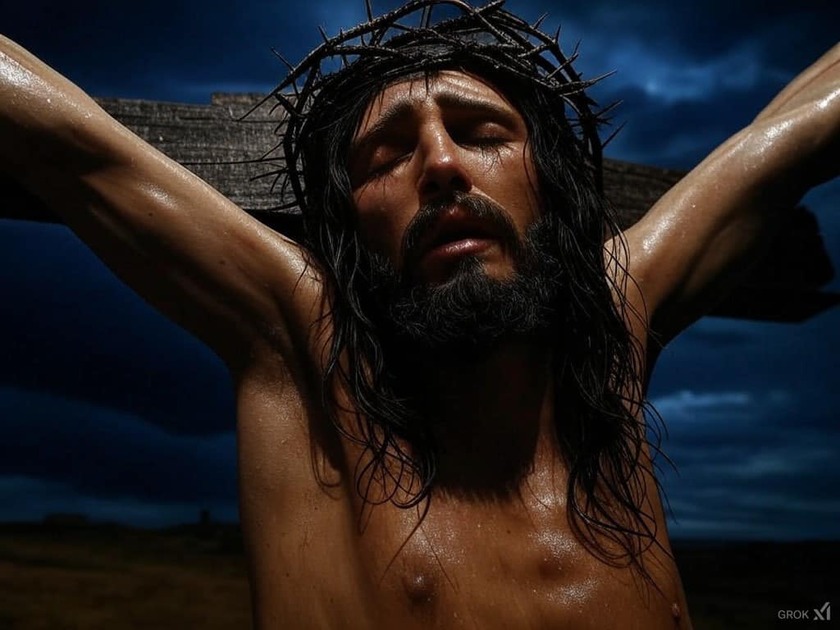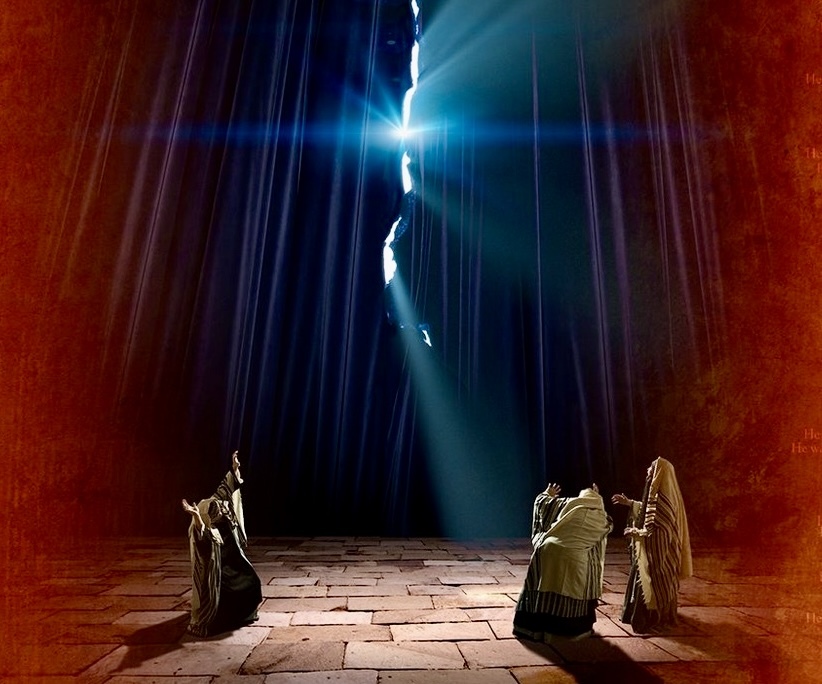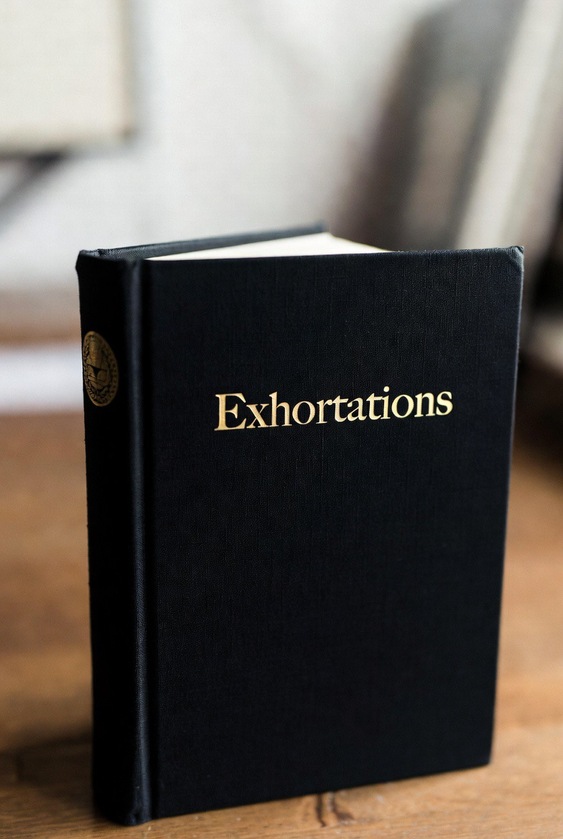Mark 15:21-22
"And they compelled a passerby, Simon of Cyrene, who was coming in from the country, the father of Alexander and Rufus, to carry his cross. And they brought him to the place called Golgotha (which means Place of a Skull)."
I find it interesting here in chapter fifteen all these "passerby's" having some influence on the narrative. We begin with Simon who is called the father of Alexander and Rufus. In Romans chapter sixteen there's a man named Rufus. Maybe Simon's son? We don't know. If Simon and his sons are well known among the early church communities in Rome, it's likely that Simon would be a person of interest having been so closely involved in the crucifixion of The Lord.
We know he was from what today we would call Libya, but we don't know much else. Was he a visiting traveler on business in Jerusalem or possibly a pilgrimage. Was he a resident there? We don't know. Probably visiting or pilgrimage since he was coming in from the country.
What do we know?
In Luke's gospel account we know that Simon carried the cross for Jesus from behind him, which is interesting in light of Jesus' words about picking up our crosses and following him.
Luke 23:26
"And when they led Him away, they laid hold of one Simon of Cyrene, coming in from the country, and placed on him the cross to carry behind Jesus."
So, this man of mystery is conscripted by the Roman soldiers to carry Jesus' cross. And he carries it for Jesus up to the place called Golgotha which is also a mount in the land called Moriah, the place that Abraham brought his son Isaac when the Lord told him to sacrifice him there on an altar.
Genesis 22:2
He [God] said, "Take your son, your only son Isaac, whom you love, and go to the land of Moriah, and offer him there as a burnt offering on one of the mountains of which I shall tell you."
And as we know, Abraham did as he was instructed, but ultimately God prevented him from going through with the sacrificing of Isaac. Abraham made the offer as he was instructed, but God provided a different offering.
Genesis 22:13-14
And Abraham lifted up his eyes and looked, and behold, behind him was a ram, caught in a thicket by his horns. And Abraham went and took the ram and offered it up as a burnt offering instead of his son. So Abraham called the name of that place, "The Lord will provide"; as it is said to this day, "On the mount of the Lord it shall be provided."
This place called "The Lord will provide" is consummated by this previous offering that was the foundation of the Hebrew faith since before being Hebrew was a thing. On that mount called Golgotha and "The Lord will provide", they crucified Jesus. And they mocked him and gambled for his clothing there.
They crucified him there between two thieves who also mocked him. All the passersby's mocked him and called for him to call down angels from heaven, to call down God himself. And of course they didn't believe God would come, they were merely mocking and deriding him.
But God did come.
Did he come in his Shekinah glory?
No.
Did he show up with his angel armies?
No.
But he did show up.
In darkness and in judgement.
Not unlike other instances in the Bible.
Genesis 15:12-15
"As the sun was going down, a deep sleep fell on Abram. And behold, dreadful and great darkness fell upon him. Then the Lord said to Abram, "Know for certain that your offspring will be sojourners in a land that is not theirs and will be servants there, and they will be afflicted for four hundred years. But I will bring judgment on the nation that they serve, and afterward they shall come out with great possessions."
Exodus 10:21-22
Then the Lord said to Moses, "Stretch out your hand toward heaven, that there may be darkness over the land of Egypt, a darkness to be felt. So Moses stretched out his hand toward heaven, and there was pitch darkness in all the land of Egypt three days."
Exodus 20:20-21
"Moses said to the people, "Do not fear, for God has come to test you, that the fear of him may be before you, that you may not sin." The people stood far off, while Moses drew near to the thick darkness where God was."
God is often associated in the Bible with a manifested darkness. He's the God of light when he comes to bring life, truth, provision and hope. And when he comes to bring testing and judgment, he is manifested in "thick darkness".
This theme is true also in instances referred to as "The day of the Lord". The earth quakes, the heavens tremble and the heavenly bodies lose their brightness. Wonders in the sky, the sun goes dark, the moon turns to blood...and so on and so on. God revealed in darkness.
Amos 5:20
"Is not the day of the Lord darkness, and not light, and gloom with no brightness in it?"
Thick darkness.
As prophesied, it certainly was a dark day in history.
Amos 8:9
"And it shall come to pass in that day, saith the Lord God, that I will cause the sun to go down at noon, and I will darken the earth in the clear day"
Q: In what day does the Lord do that?
A: In the day of divine judgment.
So, the LORD shows up for Jesus' crucifixion. He shows up to judge him. It's the day of wrath for Jesus who did no wrong. It's truly a dark day.
I want you to really get what's going on here. This is hell on earth. Darkness is The LORD'S divine judgment. Grave darkness. This is hell. The place where all who have been judged unrighteous are to one day be for all eternity. So called "outer darkness". This is the darkness of God's presence that comes to Golgotha, the mount in the land called Moriah. This is the cup Jesus accepted for you and me. Hell on earth and a dark grave for three days.
So, darkness is not the absence of God, it's his wrath, his judgment, his curse.
In the ninth hour it was ending. God's wrath was ending. The full fury of God's punishment was ending. And God left him. And Jesus cried out from that darkness.
Mark 15:34
And at three in the afternoon Jesus cried out in a loud voice, “Eloi, Eloi, lema sabachthani?” (which means “My God, my God, why have you forsaken me?”).
Here Jesus refers to his Father for the first time in the scriptures as "My God". In a desperate effort to find his light of hope he cries out in the darkness to God.
The full wrath and darkness of hell was on Jesus now. Alone he must bear it. God is no longer there.
Mark 15:37
"With a loud cry, Jesus breathed his last."
And they continued to mock him. And many continue to mock him even today. Many reject his sacrifice and especially his resurrection from the dead. Even some carry on this comedy from Christian church pulpits preaching in his name but rejecting his gospel, his sacrifice and his resurrection.
For instance:
A leftist female Episcopal bishop, Mariann Edgar Budde, at the Washington D.C. National Cathedral, made big news recently for scolding the President of the United States, Donald J. Trump. She used the words of Jesus to castigate President Trumps immigration policies. In the same way the passersby's used Jesus' words to mock him about Elijah coming to help him.
Her sermon comments should be viewed in light of her worldview which is shared by too many. Budde often treats Scripture as a dynamic, evolving text that she interprets in light of contemporary values and social contexts that are important to her ideology. She sees the scriptures as valuable for wisdom and guidance, but not as a divine source and authority, they're like a really good fortune cookie message. Jesus' words are convincing when he speaks on social justice issues, but his words having to do with divinity and judgement are more or less superstition. Budde tends to emphasize a universalist perspective on salvation while promoting activism as a matter of faith expression. She argues that traditional teachings on sexuality and marriage are outdated and inconsistent with her modern understandings. She preaches pluralism and interfaith traditions, mingling many aspects of pagan spirituality into her pulpit messages. Her approach is to emphasize political activism and a reinterpretation of Scripture in light of modern cultural values. She's preaching worldly darkness in the name of Jesus Christ.
And they continued to mock him everyday. They continue to reinvent his word to fit their agendas. They continue to crucify him with their false gospel and moralism. They continue to mock him when they strip him of his name and faith in the God who provides both light and darkness.
Their reward will be outer darkness. The Lord will provide that darkness.




















